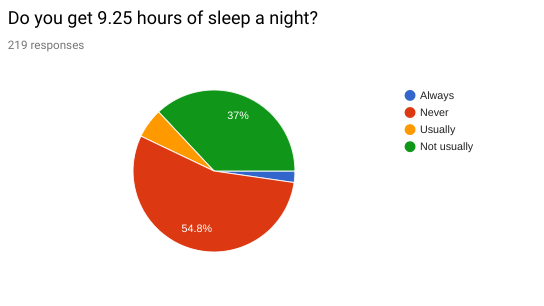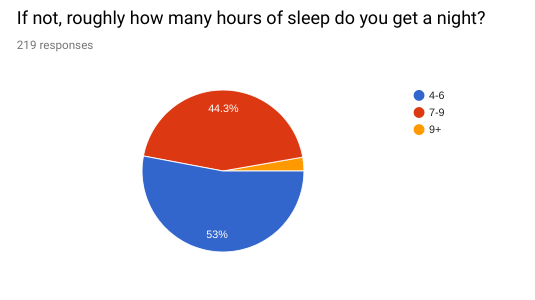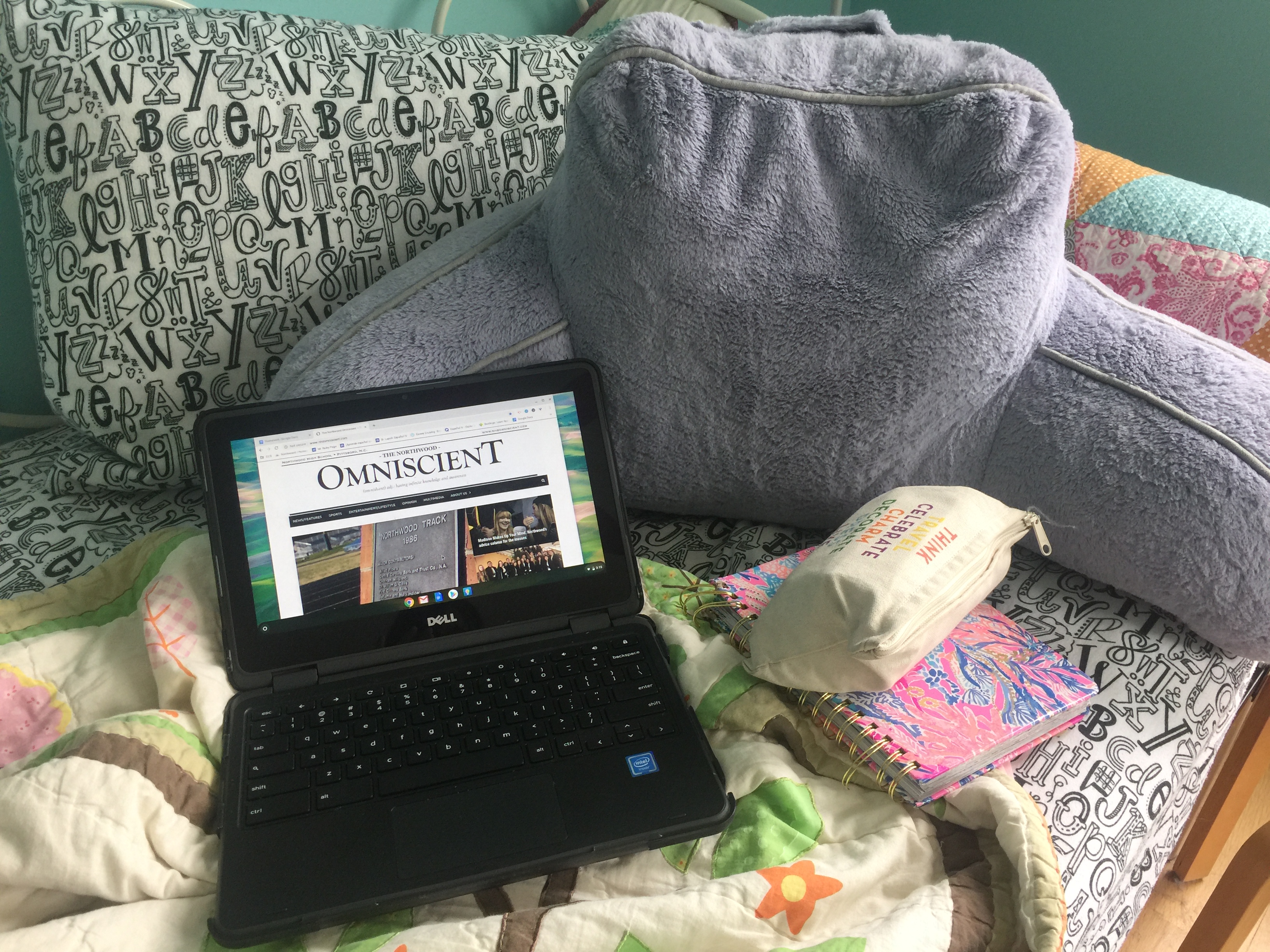Consistency can be key in life, especially when it involves sleep; however, how many of Northwood’s students are actually able to get consistent sleep? The Nationwide Children’s Hospital’s website states that “the average amount of sleep that teenagers get is between 7 and 7 ¼ hours. However, they need between 9 and 9 ½ (studies show that most teenagers need exactly 9 ¼ hours of sleep).” The website also lists the common problems that cause lack of sleep in teens. These include a “shift in sleep schedule”, “early high school start times” and “social and school obligations”. It is no surprise that many Northwood students do not receive the recommended 9- 9.5 hours of sleep, taking into consideration that Northwood starts at 8 a.m. and has many students who are involved in extracurriculars. In order to find out how closely Northwood students were meeting the recommended amount of sleep for teens, The Omniscient sent out an optional survey in which students could report their personal sleep habits. The following charts reflect their responses.



When students were asked to describe what sleep means to them, Hayden Miller, a freshman, said, “Sleep is very important to me because it gives me energy for the next morning and [it] helps me relax.”
Miller’s amount of sleep on the weeknights is exactly the average amount of sleep that teenagers actually get, which, according to The Nationwide Children’s Hospital, is seven hours. Miller stated that the amount of sleep he gets on the weekends is different. “The amount of sleep I get on the weekends is on average 10 hours (per night)…”
Like Miller, sleep is also important for junior Luisa Gallardo-Romero. On the survey, however, Gallardo-Romero responded that she gets roughly four to six hours of sleep a night which is about an hour less than Miller’s average amount of sleep on the weeknights. Despite the difference in amount of sleep between these two students, Gallardo-Romero still makes sure that she has time for herself and for sleep, saying, “I usually do my skin care routine and then head to sleep.”
Luisa’s tip for a successful sleep is to “sleep with the AC on and a comfy blanket.”
Some tips offered by The National Sleep Foundation’s website to help create “good sleep hygiene” include “sticking to a sleep schedule… the same bedtime and wake up time, even on the weekends” and “exercis(ing) daily”. The website also suggests having a peaceful sleeping environment where the “…bedroom should be cool– between 60 and 67 degrees” and “…be free from any noise that can disturb your sleep”.
Let’s not forget that summer is very close, and hopefully it includes opportunities for relaxing and restful sleep. Both Miller and Gallardo-Romero agreed that they get more sleep during the summer. The National Sleep Foundation’s website also confirms that this is the norm, as, “Teens like to use the summer weeks to catch up on lost sleep by not getting up until noon…” However, there is a problem with sleeping until noon during the summer, and that is the effect that it has on a student’s circadian rhythm. Problems with a student’s circadian rhythm could make getting up for school, once it starts, hard to do.
Regardless, there can’t be too much harm in a couple of restful days after roughly nine months of school, and as summer approaches and students are getting into their new sleep patterns, it is important to remember that North Carolina has plenty of in-state mini-vacations that could help give students the perfect setting for the restful sleep they need. Our beaches offer the opportunity to sleep next to the sound of waves, and our mountains allow for sleep in beautiful silence. The Piedmont and Coastal Plain, in the center of the state, have places to camp and sleep under the stars.
In addition to sleep, it’s important that that students don’t forget to enjoy themselves this summer. Whether it’s their last summer before college or their first while in high school, students should keep in mind what the Irish proverb says, “A good laugh and a long sleep are the two best cures for anything.”
-By Grace Miller



